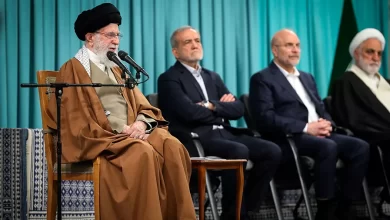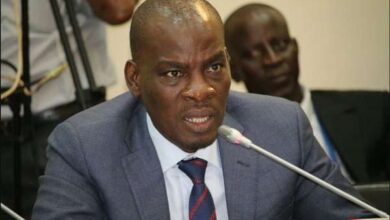
Former UN Secretary General Kofi Annan has backed African governments’ use of fossil fuels – especially the continent’s large endowment of coal – to bridge Africa’s huge energy gap.
In the face of opposition to the use of coal by climate change activists, Mr Annan said: “We are not saying countries should immediately stop using fossil fuels and switch to renewable sources of energy.”
His assertion was backed by a report by the Africa Progress Panel (APP), Lights Power Action: Electrifying Africa, launched in Abidjan recently, which said Africa needed to move faster to solve its energy crisis as quickly as possible.
This means adopting a significant increase in a range of solutions on and off grid, the report suggests.
Mr Annan, who chairs the APP, said during the report’s launch at the headquarters of the African Development Bank: “As our report clearly states, the cost of transitioning to renewables may be prohibitively high in the short term – especially for countries that use their sizeable endowments of coal and other fossil fuels to generate energy.
“What we are advocating is that African governments harness every available energy option, in as cost-effective and technologically efficient manner as possible, so that no one is left behind.
“Each country needs to decide on the most cost-effective, technologically efficient energy mix that works best for its own needs.”
Lights Power Action underlines that the 620 million Africans without access to electricity need a mix of off-grid and mini-grid solutions.
Mr. Annan went on: “Governments and their partners need to seize the opportunity to re-imagine their energy futures.
“Africa’s energy deficit continues to stifle economic growth, job creation, agricultural transformation, and improvements in health and education.
“Meeting Sustainable Development Goal 7, the energy goal, is a pre-condition for achieving many of the other goals.”
Figures show that of the 315 million people who will gain access to electricity in Africa’s rural areas by 2040, it is estimated that only 30 per cent will be connected to national grids.
Most will be powered by off-grid household or mini-grid systems.
It is in the light that there has been growing support for African countries to use coal to bring power quickly to a continent that has 35 billion tons of recoverable coal reserves that would last for 122 years at the current rate of consumption.
They argue that using coal to power Africa would drive growth and create jobs.
Last year Nigerian Finance Minister Kemi Adeosun told a joint meeting of the International Monetary Fund (IMF) and World Bank: “We in Nigeria have coal but we have a power problem, yet we’ve been blocked because it is not green.
“There is some hypocrisy because we have the entire Western industrialisation built on coal energy.
“They are saying: ‘You have to use solar and wind’, which are the most expensive,” she added.
In July last, former Nigerian President Olusegun Obasanjo, a member of the APP, added his voice to the debate: “We in Africa, we should use what we have to generate power for our people.”
Lights Power Action is an in-depth follow up to the influential 2015 Africa Progress Report, Power People Planet: Seizing Africa’s Energy and Climate Opportunities.
African governments have pointed out that the original UN Framework Convention on Climate Change (UNFCCC) places development first when it states: “Economic and social development and poverty eradication are the first and overriding priority of the developing country partner.”
For African governments, the use of coal is clearly the way forward for achieving economic development and industrialisation, rather than depending on renewable energy projects that are expensive and not delivering.
For example, a recent assessment of the Green Africa Power (GAP): Renewable Energy for Africa project launched by the UK’s Department for International Development (DfID) in March 2011 showed that it did not deliver a single GW of power.
The DfID had spent £9.4 million over five years to provide 765 gigawatts hours (GWh) of electricity to over nine million people in Africa with the aim of raising investment from the private sector for renewable energy across sub-Saharan Africa.
The recent annual review of GAP revealed that “no milestone target” had been set, and that “no projects were expected to reach financial close”.
The review is coming at a time when the UK’s foreign aid is increasingly being criticised by Conservative politicians who feel that British taxpayers’ money is going on aid projects that do not deliver for poor people.
The UK is one of only six developed countries that have hit the UN foreign aid target of 0.7 per cent.
A recent investigation by The Daily Telegraph newspaper discovered that hundreds of millions of British money spent on solar energy projects in Ethiopia, Mali and Kenya had not had the desired effect of improving access to electricity by ordinary people in Africa.
Now Priti Patel, who was appointed Secretary of State for International Development in July last year, is taking a tough stand on how UK aid is spent and wants the climate change projects investigated.
In this light, the APP report describes the kinds of policies and investments needed to support the ambitious new public and private initiatives now under way that aim to increase energy access swiftly across Africa, especially the New Deal on Energy for Africa, spearheaded by the African Development Bank.
“As our new report shows, where there is good leadership, there are excellent prospects for energy transition,” Mr. Annan said.
“We know what is needed to reduce and ultimately eliminate Africa’s energy deficit.
“Now we must focus on implementation.
“The time for excuses is over. “It’s time for action”, he noted.
Source: GNA




